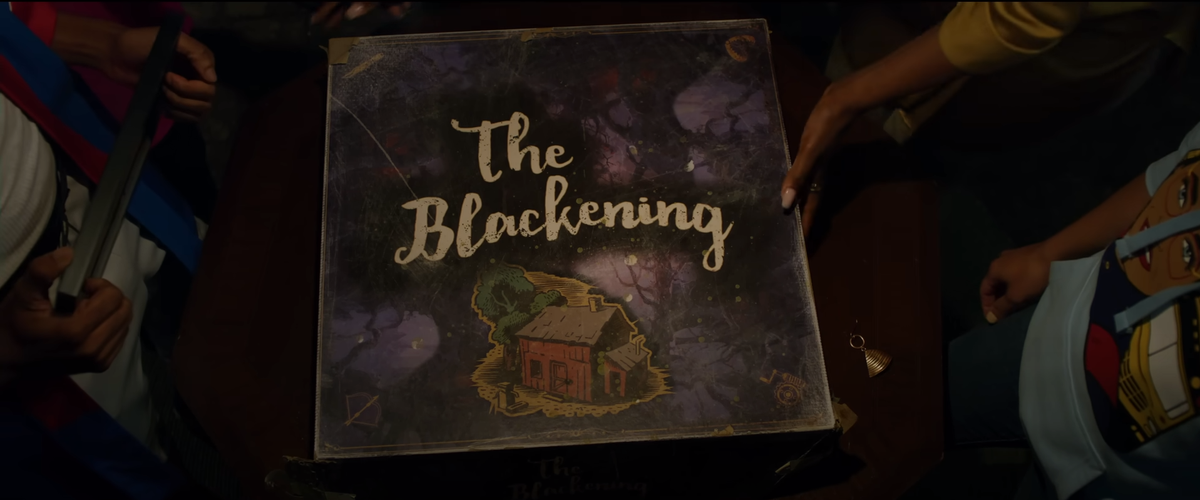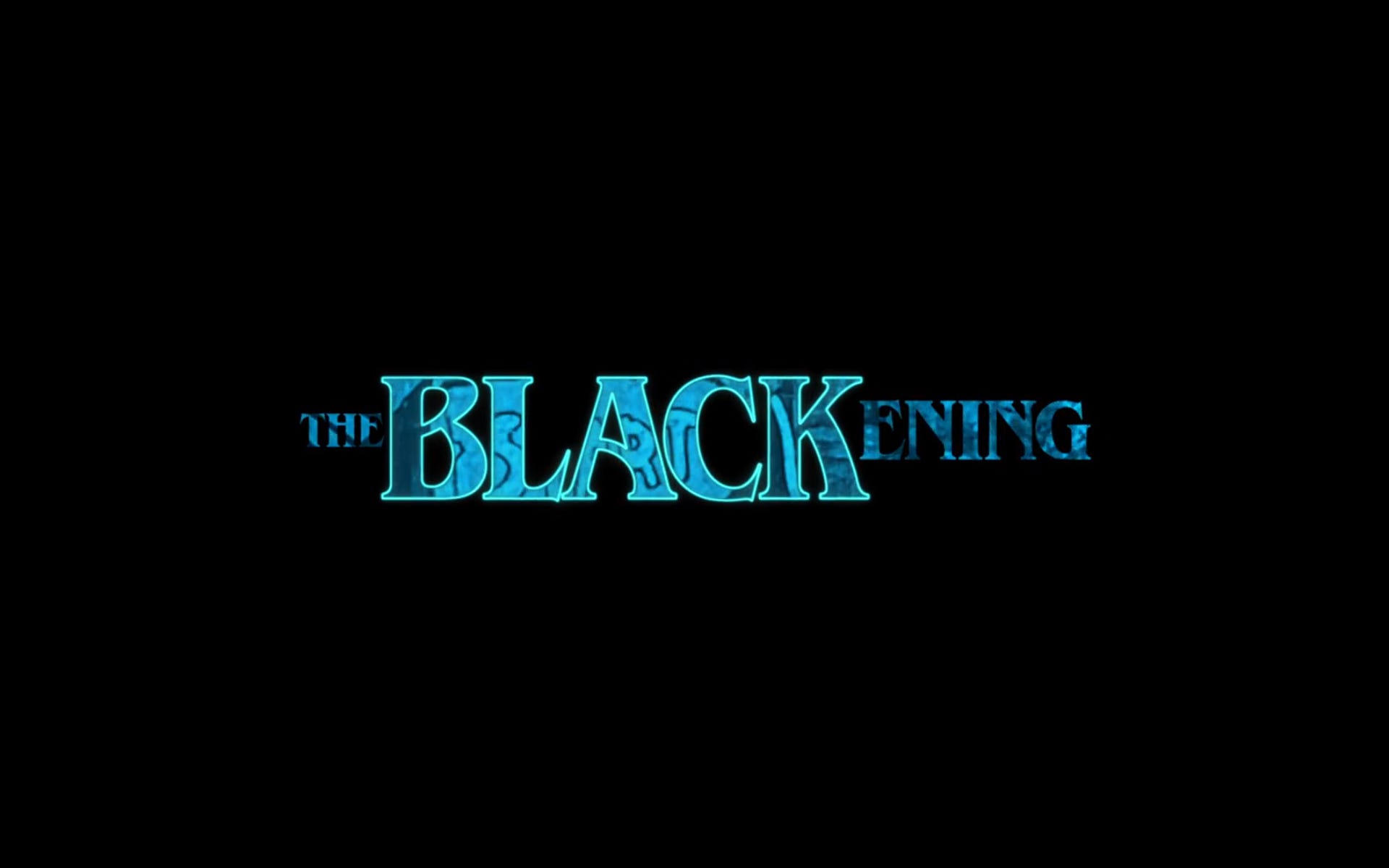The Blackening
I don't think I've seen another movie mention Spades, never mind spend so much time on it.

I get that deconstructions of tropes and cliches and characters and genres is nothing new. Hell, that’s the core of post-modernism; acknowledging within art that other art exists, and as such entering into a conversation with it, which includes questioning its base assumptions. Even blockbusters constantly get in on that game, whether explicitly or just conceptually. But I still love it, at least in theory. Not every attempt is going to work, but I appreciate the instinct to continually highlight and interrogate trends and themes, be they incidental or not. In fact, the subconscious ones are often even more interesting, since they may say something about us that even we didn’t realize.
On its surface, The Blackening inhabits such a space. Its tagline of “All of us can’t die first” alludes to an all too common trope in horror, in which the main character group includes one or two people of color, who are eliminated first. A book on the topic came out earlier this year, that’s how prevalent it is. So a movie that takes aim at that in a comedic way sounds like a great idea.
Of course, while the tagline is true, the very first scene features the death of a Black man. This immediately dispels the notion that everyone is safe, and tells the audience that despite its humor bent, this is going to be a horror movie at its core.
The plot focuses on a group of friends meeting at a remote cabin to celebrate Juneteenth. They haven’t seen each other in ten years, so tensions are bound to arise. Dewayne (Dewayne Perkins) takes issue with Nnamdi (Sinqua Wells) for his unfaithfulness to Lina (Antoinette Robertson), Dewayne’s best friend. Everyone is cocking their eyebrow at King (Melvin Gregg) for marrying a white lady. Most out of place is Clifton (Jermaine Fowler), who knew everyone in school and wasn’t friends with them, but invited himself when he ran into Shanika (X Mayo) at a gas station.
Propelling the plot forward is a board game the group stumbles across the first night during a blackout. Called “The Blackening”, a creepy, crackly voice emits from the plastic minstrel in blackface at the center of the board, directing them through a trivia game. It threatens death if they get an answer wrong, and backs that up by locking the door and somehow knowing all their names. So it appears there’s someone watching them who wants an excuse to kill them…
And that’s kind of it. The plot proceeds as you might expect from there, with a few little flourishes, but nothing special. There’s some lampshading as they follow horror tropes, some solid jokes which makeup misdirects, and a few jump scares. Friends bicker, tensions flare, and they must all work together to outsmart this person who wants them dead, seemingly simply for being Black. The characters are fairly recognizable archetypes, albeit not ones that Black actors often get to play. The “game” even references the Black person dying first trope to get the gang arguing amongst themselves who’s the most Black. This comes up multiple times, as if to ensure you catch its self-referential nature.
There are some solid character moments and jokes and references and such, but it rests too much on the cliches of the genre to really make an impact. There are a few good ideas here (not unique, but well executed), such as when they start to question how many killers there are, or the character of Ranger White (Diedrich Bader). It’s just that we so quickly resolve them, then get right back into rote plot beats. Even the humor falls into that. When it comes, it’s often very forced or a non sequitur, leaving you more confused than entertained. But ultimately, it forgets to be a satire and settles into the framework of a mediocre home invasion film.
It’s not that the movie has nothing to say (although it doesn’t have much). Most things are communicated clunkily, through some half-assed snarky line, or a blunt and obvious joke that fails to land outside of a nod of agreement. Because despite the potential for a challenging and sharp story, one which puts Hollywood and audiences on blast, it mostly just wants to be agreeable. Sure, there are a couple jokes made at the expense of white people, but they lack any sort of punch or edge, making them feel more obligatory than pointed. It more often echoes comments very recognizable from internet discourse, making it feel derivative and safe.
This movie does have some of the coolest opening credits I’ve seen in a bit. The title is an outline on a solid black background. It starts huge and centered, and very slowly we pull out until it only fills about half the screen width. Within the letters, we see changing imagery. Mostly, it’s scrolling shots of a forest at night, dense with fog but lit by moonlight, with the occasional flash of lighting. There are a few shots mixed in of the game board, too. So the images don’t mean much, although they’re trying to set a tone. Which feels in keeping with the rest of the film.

Ultimately, this did very little for me. It wanted to be a satire, but refused to be sharp. It wanted to be a comedy, but could only achieve “it’s funny because it’s true”. And it wanted to be a horror, but had almost no creativity. There were some good scenes and characters, sure. But even they got lost in the shuffle. There’s a good movie out there using this idea, it’s just not this movie.